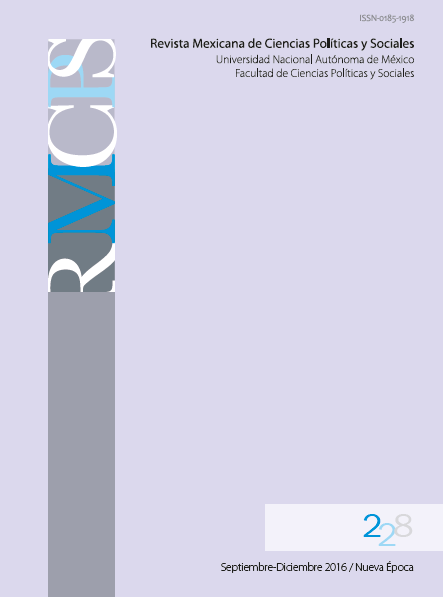The Concept of Genocide and the “Partial Destruction of National Groups”. Some Considerations on the Impact of Criminal Law on International Politics and Memory Processes
Main Article Content
Abstract
Downloads
Article Details
Citas en Dimensions Service
References
Albright, Madeleine y William Cohen, (2008) Preventing Genocide. A Blueprint for U.S. Policymakers. Washington, United States Holocaust Memorial Museum, The American Academy of Diplomacy and the Endowment of the U.S. Institute of Peace.
Bjornlund, Matthias; Markusen, Eric y Martin Mennecke, (2005) “¿Qué es el genocidio? En la búsqueda de un denominador común entre definiciones jurídicas y no jurídicas” en Daniel Feierstein (comp.), Genocidio. La administración de la muerte en la modernidad. Buenos Aires, EDUNTREF, Buenos Aires.
Chalk, Frank y Kurt Jonassohn, (1990) The History and Sociology of Genocide. Analysis and Case Studies. New Haven, Yale University Press.
Charny, Israel, (1994) “Toward a Generic Definition of Genocide” en Andreopoulos, George (coord.), Genocide: Conceptual and Historical Dimensions, Philadelphia. Pennsylvania, University of Pennsylvania Press.
Churchill, Ward, (1997) A Little Matter of Genocide: Holocaust and Denial in the Americas, 1492 to the Present. San Francisco, City Lights Books.
Corte Penal Internacional, (2002) Estatuto de Roma de la Corte Penal Internacional. Disponible en: <http://www.un.org/spanish/law/icc/statute/spanish/rome_statute(s).pdf> [Consultado el 15 de junio de 2016].
Gómez, Andrei, (2008) “Bloques perpetradores y mentalidades genocidas: el caso de la destrucción de la Unión Patriótica en Colombia” en Revista de Estudios sobre Genocidio. Volumen 2, pp. 42-55, Buenos Aires. Disponible en: <http://revistagenocidio.com.ar/wp-content/uploads/2013/05/42-55.pdf> [Consultado el 20 de junio de 2016].
Fein, Helen, (1979) Accounting for Genocide. Nueva York, The Free Press.
Ferreira, Marcelo, (2009) “Genocidio reorganizador en Colombia. A propósito de una sentencia del Tribunal Permanente de los Pueblos” en Daniel Feierstein (ed.), Terrorismo de Estado y genocidio en América Latina. Buenos Aires, Prometeo.
Harff, Barbara y Ted Gurr, (1988) “Toward Empirical Theory of Genocides and Politicides” en International Studies Quarterly. Vol. 32, núm. 3, pp. 359-371. Tucson, The International Studies Association, University of Arizona. DOI: 10.2307/2600447.
Journal of Genocide Studies and Prevention. An International Journal, (2009) Vol. 4, núm. 2. Toronto, International Association of Genocide Scholars y University of Toronto Press.
Lemkin, Raphael, (1944) Axis Rule in Occupied Europe. Washington, Carnegie Endowment for International Peace.
Lemkin, Raphael, (2008) El dominio del Eje en la Europa ocupada. Buenos Aires, Prometeo, EDUNTREF.
Kuper, Leo, (1981) Genocide. Its Political Use in the Twentieth Century. New Haven y Londres, Yale University Press.
Kuper, Leo, (1990) Genocide. Its political use in the Twentieth Century”. New Haven, Yale University Press.
Schabas, William, (2010) “The Law and Genocide” en Bloxham, Donald y Dirk Moses (eds.), The Oxford Handbook on Genocide Studies. Oxford, Oxford University Press, pp. 123-141.
Scheffer, David, (2007) “The World Court´s Fractured Ruling on Genocide” en Genocide Studies and Prevention. An International Journal. Vol. 2, núm. 2. Toronto, International Association of Genocide Scholars and University of Toronto Press, pp. 123-136.
Tribunal Permanente de los Pueblos, (2014) Libre comercio, violencia, impunidad y derechos de los pueblos en México (2011-2014). Audiencia final, Ciudad de México, 12-15 de noviembre. Disponible en : <http://tribunalepermanentedeipopoli.fondazionebasso.it/wp-content/uploads/2012/07/SENTENCIAFINAL2diciembre2014.pdf> [Consultado el 20 de junio de 2016].
Weiss, Thomas, (2007) “Halting Genocide. Rethoric versus Reality” en Genocide Studies and Prevention. An International Journal. Vol. 2, núm. 1. Toronto, International Association of Genocide Scholars and University of Toronto Press, pp. 7-30.
Whitaker, Benjamin, (1985) Doc. E/CN. 4/Sub. 2/1985/6. Presentado ante la Subcomisión de Prevención de Discriminaciones y Protección a las Minorías, Comisión de Derechos Humanos, Consejo Económico y Social de las Naciones Unidas del 2 de julio.

La Revista Mexicana de Ciencias Políticas y Sociales publicada por la Universidad Nacional Autónoma de México se distribuye bajo una Licencia Creative Commons Atribución-NoComercial-SinDerivar 4.0 Internacional.
Basada en una obra en http://www.revistas.unam.mx/index.php/rmcpys/
La RMCPyS autoriza a sus colaboradores que suban una copia de sus trabajos publicados en sus webs personales o en cualquier repositorio de acceso abierto, siempre y cuando se mencione específicamente a la Revista Mexicana de Ciencias Políticas y Sociales como fuente original de procedencia, citando el año y número del ejemplar respectivo y añadiendo el enlace a la página web donde este órgano editorial puede ser consultado in toto, de manera abierta y gratuita en: <www.revistas.unam.mx/index.php/rmcpys>.
Las y los lectores tienen libertad para:
Compartir, copiar y redistribuir el material en cualquier medio o formato.
El licenciante no puede revocar estas libertades en tanto usted siga los términos de la licencia.
De acuerdo con los siguientes términos:
- Atribución: la/el lector/a debe reconocer el crédito de una obra de manera adecuada, proporcionar un enlace a la licencia, e indicar si se han realizado cambios. Puede hacerlo en cualquier forma razonable, pero no de forma tal que sugiera que tiene el apoyo del licenciante o lo recibe por el uso que hace.
- No comercial: la/el lector/a no puede hacer uso del material con fines comerciales.
- Si se mezcla, transforma o se desarrolla a partir de la obra licenciada, no se permite la distribución del material modificado.
Cargos por gestión de artículos
La Revista Mexicana de Ciencias Políticas y Sociales NO cobra tarifas por recibir, procesar o publicar los artículos (Article Processing Charge [APC]) enviados por los autores.

